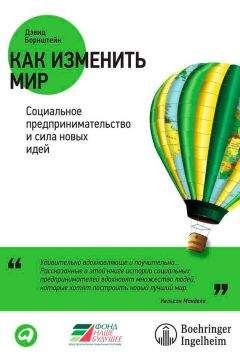Дэвид Пристланд - Красный флаг: история коммунизма
733
S. Gundle, “The Legacy of the Prison Notebooks: Gramsci, the PCI and Italian Culture in the Cold War Period”, in C. Duggan and С Wagstaff (eds.), Italy in the Cold War. Politics, Culture and Society 1948—58 (Oxford, 1995), p. 139.
734
D. Kertzer, Comrades and Christians. Religion and Political Struggle in Communist Italy (Cambridge, 1980), p. 106; C. Duggan, “Italy in the Cold War Years and the Legacy of Fascism”, in Duggan and Wagstaff, Italy in the Cold War, p. 20.
735
Об этом см. Duggan, “Italy in the Cold War Years”, pp. 1—24.
736
Об этом см. D. Heinzig, The Soviet Union and Communist China, 1945—1950. The Arduous Road to the Alliance (Armonk, NY. 2004), pp. 263—384.
737
Shi Zhe, цит. по J. Chang and J. Halliday, Mao: the Unknown Story (London, 2006), p. 431.
738
Hua-Yu Li, “Stalin’s Short Course and Mao’s Socialist Transformation in the Early 1950s”, Russian History/Histoire Russc 29 (2002), p. 363.
739
Об этом см. О. Westad, Decisive Encounters: the Chinese Civil War, 1946—1950 (Stanford, 2003), pp. 260—1, 267—9.
740
См. Cm. D. Kaple, The Dream of a Red Factory. The Legacy of High Stalinism in Russia (New York, 1994).
741
W. Stueck, Rethinking the Korean War. A New Diplomatic and Strategic History (Princeton, 2002), pp. 73—4.
742
J. Strauss, “Paternalist Terror. The Campaign to Suppress Counterrevolutionaries and Regime Consolidation in the People’s Republic of China, 1950—1953”, Comparative History in Society and History 44 (2002), pp. 80—105.
743
Там же, с. 97.
744
Мао Цзэдун, 7 февраля 1953, в К. Fan (ed.), Мао Tsetung and Lin Piao: Post-revolutionary Writings (Garden City, NY, 1972), p. 102.
745
Yu Miin-Ling, “A Soviet Hero, Pavel Korchagin, comes to China”, Russian History / Histoire Russe 29 (2002), pp. 329—56.
746
Tina Mai Chen, “Internationalism and Cultural Experience. Soviet Films and Popular Chinese Understandings of the Future in the 1950s”, Cultural Critique 58 (2004), p. 96.
747
Wu Hung, Remaking Beijing: Tiananmen Square and the Creation of a Political Space (London, 2005), pp. 104—5.
748
Цит. по A. Finnane, Changing Clothes in China. Fashion, History, Nation (London, 2007), p. 209.
749
Цит. там же, с. 224.
750
Это утверждается в Charles Armstrong, The North Korean Revolution, 1945—1950 (Ithaca, 2003).
751
Там же, с. 167.
752
В. Cumings, The Origins of the Korean War, Vol 2. The Roaring of the Cataract, 1947—1950 (Princeton, 1990), p. 341.
753
Armstrong, North Korean Revolution, pp. 222—9.
754
J. Palais, “Confucianism and the Aristocratic/Bureaucratic Balance in Korea”, Harvard Journal of Asiatic Studies 44 (1984), pp. 427—68.
755
Об этом см. Armstrong, North Korean Revolution, p. 73.
756
Цит. по К. Lebow, “Public Works, Private Lives. Youth Brigades in Nowa Huta in the 1950s”, Contemporary European History 10, 2 (2001), p. 205.
757
Там же, с. 208.
758
О венгерском случае см. в М. Pittaway, “The Reproduction of Hierarchy: Skill, Working-Class Culture, and the State in Early Socialist Hungary”, Journal of Modern History 74 (2002), pp. 737—69. О разочаровании польских рабочих см. P. Kenney, Rebuilding Poland: Workers and Communists, 1945—1950 (Ithaca, 1997), p. 292.
759
G. Pritchard, The Making of the GDR, 1945—1953. From Antifascism to Stalinism (Manchester, 2004), p. 196.
760
M. Pittaway, “Workers in Hungary”, in E Breuning, J. Lewis and G. Pritchard, Power and the People. A Social History of Central European Politics, 1945—56 (Manchester, 2005), pp. 68—9.
761
Цит. по Kenney, Rebuilding Poland, p. 234.
762
Pittaway, Eastern Europe, pp. 92—3.
763
Pritchard, The Making of the GDR, p. 122.
764
Hanna Swida-Ziemba, “Stalinizm i Spoleczeństwo Polskie”, in J. Kurczewski (ed.), Stalinizm (Warsaw, 1989), p. 49.
765
Mark Frazier, The Making of the Chinese Industrial Workplace: State, Revolution, and Labour Management (Cambridge, 2002), p. 146.
766
J. Pelikan, The Czechoslovak Political Trials, 1950—1954. The Suppressed Report of the Dubcek Government’s Commission of Enquiry, 1968 (London, 1971), p. 56.
767
E. Friedman, P. Pickowicz and M. Selden, Chinese Village, Socialist State (New Haven, 1991), p. 130.
768
Там же.
769
Там же, с. 190.
770
Там же, сс. 188,196.
771
G. Creed, Domesticating Revolution. From Socialist Reform to Ambivalent Transition in a Bulgarian Village (University Park, Pa, 1998), p. 61.
772
D. Kideckel, The Solitude of Collectivism. Romanian Villagers to the Revolution and Beyond (Ithaca, 1993), p. 85.
773
M. Lampland, The Object of Labor: Commodification in Socialist Hungary (Chicago, 1995), p. 155.
774
Creed, Domesticating Revolution, p. 70.
775
Pritchard, The Making of the GDR, p. 201.
776
Pittaway, Eastern Europe, p. 60.
777
S. Reid, Khrushchev in Wonderland. The Pioneer Palace in Moscow ys Lenin Hills, 1962. Carl Beck Papers in Russian and East European Studies, No. 1606, pp. 1—5, 25—6.
778
S. Reid, The Exhibition Art of Socialist Countries, Moscow 1958—9, and the Contemporary Style of Painting”, in S. Reid and D. Crowley (eds.), Style and Socialism. Modernity and Material Culture in Post-War Eastern Europe (Oxford, 2000), p. 103.
779
Reid, Khrushchev in Wonderland. The Pioneer Palace in Moscow ys Lenin Hills, p. 2.
780
N. Khrushchev, Khrushchev Remembers. The Last Testament, trans, and ed. S. Talbott (London, 1974), pp. 98—101.
781
M. Djilas, Memoir of a Revolutionary, trans. D. Willen (New York, 1973), pp. 220—3.
782
Об этих моделях см. S. Woodward, Socialist Unemployment: the Political Economy of Yugoslavia, 1945—1990 (Princeton, 1995)” pp. 58—60.
783
С Lilly, Power and Persuasion: Ideology and Rhetoric in Communist Yugoslavia, 1944—1953 (Boulder, 2001), p. 123.
784
M. Djilas, Tito: The Story from Inside, trans. V Kojic and R. Hayes (London, 1981), pp. 83—4.
785
S. Pavlowitch, Tito. A Reassessment (London, 1992), p. 81.
786
Djilas, Tito, pp. 95—6.
787
M. Brkljacic, “Popular Culture and Communist Ideology”, in J. Lampe and M. Mazower (eds.), Ideologies and National Identities. The Case of Twentieth-Century Southeastern Europe (Budapest, 2004), p. 197.
788
R. Service, Stalin. A Biography (London, 2004), pp. 581—6.
789
F. Burlatsky, Khrushchev and the First Russian Spring (London, 1991), P. 5.
790
Y. Gorlizki and O. Khlevniuk, Cold Peace: Stalin and the Soviet Ruling Circle, 1945—1953 (New York, 2004), pp. 124—31.
791
V. Zubok and C. Pleshakov, Inside the Kremlin’s Cold War (Cambridge, Mass., 1996), p. 142.
792
Gorlizki and Khlevniuk, Cold Peace, pp. 132—3.
793
A. Knight, Beria. Stalin’s First Lieutenant (Princeton, 1993), p. 190.
794
V. Molotov, Molotov Remembers: Inside Kremlin Politics. Conversations with Felix Chuev, ed. Albert Resis (Chicago, 1993), p. 334.
795
А. Маленков, О моем отце (Москва, 1992) с. 103; Zubok and Pleshakov, Inside the Kremlin, p. 143.
796
W. Hayter, The Kremlin and the Embassy (London, 1966), pp. 106—7, 37—9.
797
См. Правда, 13 марта 1954 г.
798
C. Bohlen, Witness to History, 1929—1969 (New York, 1973), p. 370.
799
Цит. по М. Leffler, For the Soul of All Mankind. The United States, the Soviet Union and the Cold War (New York, 2007), p. 98.
800
О дальнейшей роли идеологического догматизма с обеих сторон см. Leffler, For the Soul, pp. 147—50.
801
Hayter, Kremlin, p. 108.
802
W. Thompson, Khrushchev: a Political Life (Basingstoke, 1995), p. 8.
803
N. Khrushchev, Khrushchev Remembers: the Glasnost Tapes, trans, and ed. J. Schecter and V. Luchkov (Boston, 1990), p. 6.
804
Цит. по W. Taubman, Khrushchev. The Man and His Era (London, 2003), p. 122.
805
Burlatsky, Khrushchev, pp. 65—6.
806
Цит. по Taubman, Khrushchev, p. 274, об этой трактовке речи см. там же, глава 11.
807
Текст речи см. в публикации «Речь Хрущева на закрытом заседании XX съезда КПСС 24—25 февраля 1956 года» (Мюнхен, 1956).
808
P. Jones, “Real and Ideal Responses to Destalinization”, in P. Jones (ed.), The Dilemmas of Destalinization, Negotiating Cultural and Social Change in the Khrushchev Era (London, 2006), pp. 41—62.
809
J. Mark, “Society, Resistance and Revolution:The Budapest Middle Class and the Hungarian Communist State 1948—56”, English Historical Review 488 (2005), pp. 975—6.
810
Molotov, Molotov Remembers, p. 334.


